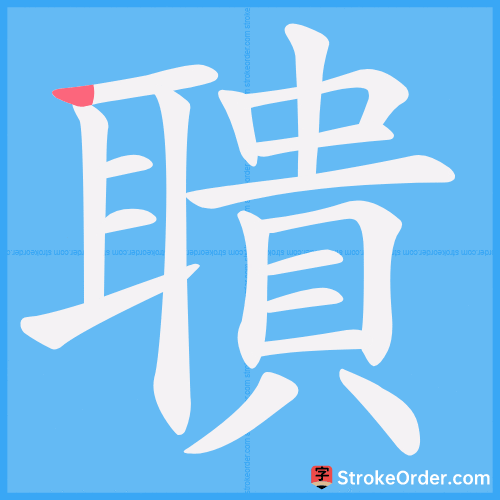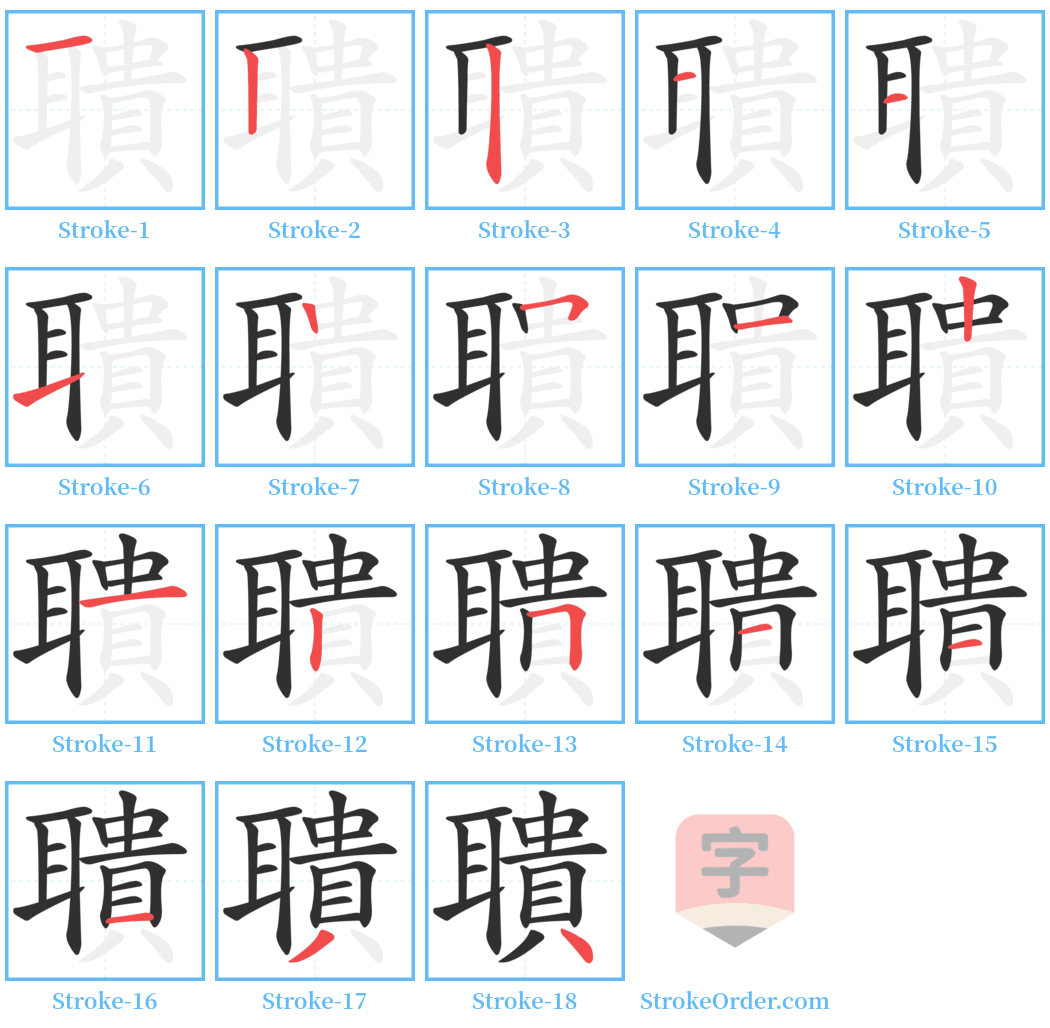聵 Stroke Order
Animated Stroke Order of 聵

Stroke Order Diagrams for 聵

Step-by-Step Handwriting Guide for 聵

Learn to Write Chinese Characters with Video Tutorials
Watch the video of writing the Chinese character "聵", learn the correct stroke order (笔顺) of the character "聵", and master the standard way of writing the character "聵".
Free Printable Handwriting Practice with Stroke Order: 聵
Printable Writing Practice Worksheet of "聵" in Portrait Orientation (Tian Zi Ge)

Printable Writing Practice Worksheet of "聵" in Landscape Orientation (Tian Zi Ge)

Information of 聵
Pinyin
kuì
Radical
耳
Strokes
18 strokes
Usage
★★★
Definition
born deaf / deaf
聵 kuì
1. 生而耳聾。
(Born deaf.)
2. 糊塗;不明事理。
(Confused; unaware of the situation. For example: 昏聵.)
3. 假裝不知。
(Pretending not to know.)
---
聵 kuì
[動] (verb)
1. 先天性耳聾。後泛指耳聾。
(Congenital deafness. Later generally refers to being deaf.)
引:
1. 《說文》:聵,生而聾也。從耳,貴聲。
(Shuōwén: 聵, born deaf. It derives from ear, which values sound.)
2. 《東坡志林》:蘄州龐君 安常善醫則聵。
(In "Dongpo's Notes": If Pang from Qizhou is a good doctor, then he is aware of deafness.)
3. 《國語·晉語四》:聾聵不可使聽。
("Guoyu, Jinyu Four": Deaf people cannot be made to hear.)
例:
又如: 聵眊 (耳聾眼花。引申爲昏聵)
(For example: 聵眊 [deaf and visually impaired], which extends to mean being confused.)
---
聵 kuì
[形] (adjective)
1. 昏聵,不明事理。
(Confused, unaware of the situation.)
引:
1. 皮日休《耳箴》:近愚則聵。
(In "Ear Verses": The nearer to stupidity, the more one is deaf.)
2. 孔尚任《桃花扇》:開聾啓聵。
(In "Peach Blossom Fan": Open the deafness and awaken understanding.)
例:
又如: 聵聵 (胡塗無知,不明事理)
(For example: 聵聵 [confused and ignorant, unaware of the situation])